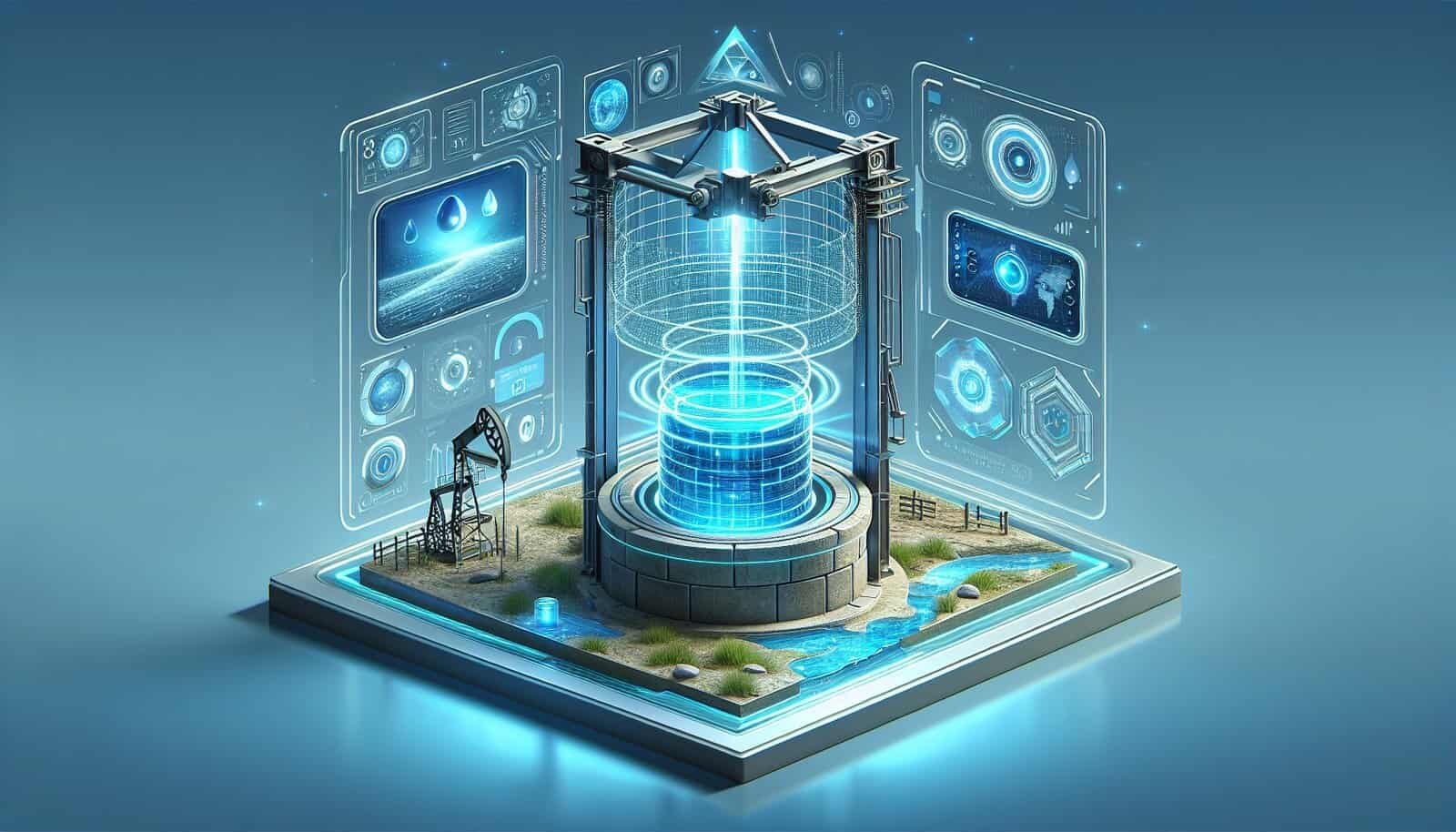Have you ever wondered about the accessibility of virtual conferences on water well technology? It’s a fascinating field with a wealth of knowledge waiting to be tapped into, much like the water wells themselves. With the advent of technology, the way we learn and convene has drastically shifted. Virtual conferences have revolutionized how experts, practitioners, and enthusiasts in the water well sector connect, share insights, and stay updated. If you’re keen on understanding how these virtual gatherings work and how they can enhance your knowledge, you’re in the right place.

Understanding Water Well Technology
Water well technology is a specialized area centered around the methods, equipment, and scientific principles used for the exploration, drilling, maintenance, and monitoring of water wells. These wells are crucial as they provide a way to access groundwater, which is a vital source for drinking, agriculture, and industrial purposes. As global water needs grow, innovations in this technology aim to make water sourcing more efficient, sustainable, and environmentally friendly.
Importance of Water Wells
Water wells are crucial for communities, especially in regions lacking surface water sources. They provide a reliable source of clean water for drinking, irrigation, and industrial use. Understanding the significance of these wells and the latest technological advancements can contribute significantly to water conservation and management efforts.
Advances in Water Well Technology
The field of water well technology is ever-evolving. Recent advancements include more efficient drilling techniques, improved water quality monitoring systems, and sustainable extraction methods that minimize environmental impact. Understanding these innovations is essential for anyone involved or interested in the field.
The Rise of Virtual Conferences
Virtual conferences have gained prominence as a platform that transcends geographic barriers, allowing participants from across the globe to engage in meaningful discussions. Unlike traditional conferences, virtual gatherings are more accessible and often more affordable, encouraging broader participation across different sectors and regions.
Benefits of Virtual Conferences in Water Well Technology
Virtual conferences offer several advantages, particularly for niche fields such as water well technology. They bridge distances, reduce organizational costs, and significantly lower the carbon footprint associated with international travel. Additionally, they give access to an expansive pool of international expertise and a diverse range of perspectives without geographical constraints.
The Technology Behind Virtual Conferences
Virtual conferences rely heavily on technology, involving the use of web-based platforms for live streaming, virtual networking, and interactive sessions. Popular platforms include Zoom, Microsoft Teams, Hopin, and others specifically designed for large-scale virtual events. These platforms facilitate real-time discussions and presentations, ensuring you can engage actively with the content.
What to Expect from Virtual Conferences on Water Well Technology
Should you decide to participate in a virtual conference on water well technology, here’s what you can typically anticipate in terms of structure, content, and experience.
Session Formats
Virtual conferences often feature a variety of session formats, including keynote speeches, panel discussions, and workshops. These sessions are typically interactive, allowing you to ask questions and share insights in real time.
Topics Covered
Conferences in this field cover a wide range of topics. Expect discussions on cutting-edge technology, regulatory challenges, sustainability practices, and case studies of successful projects. You will also find sessions focusing on global water scarcity challenges and how technology is bridging the gap.
Networking Opportunities
Networking is a key part of any conference. Virtual platforms often include features for one-on-one chats, group discussions, and virtual lounges, enabling you to connect with peers, industry experts, and potential collaborators from around the world.
How to Get Involved in a Virtual Conference
Getting involved in virtual conferences requires a bit of planning, but it’s well worth the effort for the wealth of knowledge and connections you can gain.
Finding the Right Conference
To find a virtual conference that matches your interests and needs, consider professional organizations, societies, and online platforms dedicated to water well technology. Websites such as Eventbrite, LinkedIn, and industry-specific forums often list upcoming events.
Preparing for the Conference
Once you’ve registered for a conference, prepare by researching the topics, familiarizing yourself with the speakers, and planning which sessions you’d like to attend. Being well-prepared enhances your ability to engage with the content and contribute meaningfully.
Engaging During the Conference
Engage actively during sessions by participating in Q&A segments, taking notes, and joining networking sessions. Virtual settings may feel different from in-person experiences, but the knowledge and connections you gain can be just as valuable.

Benefits of Attending Virtual Conferences
Attending virtual conferences provides numerous benefits, some of which may not be immediately apparent. Here are a few advantages you might appreciate.
Access to Global Expertise
Virtual conferences attract speakers and attendees from around the world. This offers you exposure to a diverse range of ideas and practices that might not be available locally, providing a global perspective on water well technology.
Cost-Effectiveness
Without the overhead costs of travel, accommodation, and other expenses associated with physical events, attending virtual conferences is often more economical. This makes high-quality learning and networking more accessible.
Flexibility and Convenience
Attending a virtual conference from the comfort of your home or office provides added convenience and flexibility. Sessions can often be recorded, allowing you to watch them at your own pace and revisit the content as needed.
Increased Inclusivity
Virtual settings can break down barriers to participation for individuals who might face challenges attending physical events, such as those with mobility issues or constraints due to family responsibilities.
Potential Challenges and Solutions
While virtual conferences offer many advantages, they are not without their challenges. Here’s how you can address them effectively.
Technical Issues
Technical glitches can disrupt sessions. To mitigate this, ensure you have a stable internet connection, familiarize yourself with the conference platform beforehand, and have technical support contacts readily available.
Engagement Levels
Staying engaged in a virtual setting can be challenging compared to in-person interactions. Set a dedicated time and space for the conference, free from distractions, to enhance your focus and participation.
Time Zone Differences
With global participation, time zone differences can affect your availability for live sessions. Many conferences provide on-demand recordings for sessions, allowing you to access the material at a convenient time.

The Future of Virtual Conferences in Water Well Technology
The transition to virtual conferences isn’t just a temporary trend but a potential mainstay for many fields, including water well technology. The increased ease of access, cost-effectiveness, and reduced environmental impact mean this approach will likely persist, complementing traditional conferences.
Hybrid Models
Looking ahead, hybrid conferences combining both physical and virtual elements are likely to gain momentum. These models offer the best of both worlds: the tangible networking opportunities of in-person events and the inclusivity and flexibility of virtual platforms.
Advancements in Virtual Conference Technology
As technology continues to advance, virtual conference platforms will likely become more sophisticated, offering enhanced features such as virtual reality experiences, AI-driven networking suggestions, and more immersive environments.
Continuous Learning Opportunities
Adoption of digital tools and online platforms is likely to increase the availability of continuous learning resources. Virtual conferences will play a crucial role in ongoing education and professional development by providing regular updated content on the latest developments in the industry.
Conclusion
Virtual conferences on water well technology provide a unique opportunity to stay informed, connected, and engaged with industry advancements without the need for physical travel. They offer a dynamic platform for learning from global experts, engaging in insightful discussions, and contributing to meaningful innovations within the field. By participating, you not only expand your knowledge but also join a broader community striving for innovative solutions to water challenges worldwide. As you look to the future, consider how virtual conferences can enhance your professional journey and contribute to the larger conversation around sustainable water management practices.


